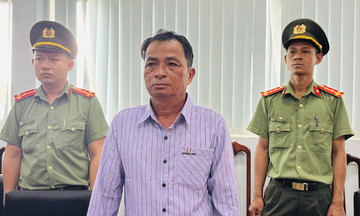The Council of Judges of the Supreme People’s Court has proposed a draft resolution guiding the implementation of legal and administrative procedures online.
Eight procedures are slated for online implementation: Filing lawsuits and petitions; submitting documents and evidence; issuing and serving legal documents and notices; paying court fees and expenses; conducting court hearings and trials; issuing copies of court verdicts and decisions; exchanging case files and documents between courts; and other legal and administrative procedures as prescribed by law.
The resolution will apply to the entire court system and any organizations or individuals who choose to use it. The online procedures will be conducted upon request and will carry the same legal validity as in-person proceedings.
Citizens will not be required to resubmit documents already filed online and held by legal authorities or other government agencies. All online transactions must comply with relevant security and privacy laws.
The National Public Service Portal will accept online lawsuits.
Article 18 of the draft stipulates that individuals and organizations can submit lawsuits and supporting documents via the National Public Service Portal or other methods as directed by the Supreme People’s Court.
Physical evidence, audio-visual materials, or any materials that cannot be digitized must be submitted in person according to legal procedures.
Upon receiving a lawsuit and supporting documents, the court will send a confirmation to the submitter’s online account. The confirmation will comply with legal regulations and guidelines from the Supreme People’s Court. The filing date will be the date the system confirms successful submission.
However, the court may request original documents if there's reason to believe the electronic versions are not accurate, complete, clear, or properly formatted.
To use the online system, individuals and organizations must have a digital signature or other legally recognized authentication methods, such as OTP, secure key storage devices, or the national electronic identification account (VNeID).
In case of technical issues, the court will notify users immediately. If the problem is not resolved within 3 days, users can submit their documents in person. This period will be considered a justifiable delay and will not count towards procedural deadlines.
Court fees and expenses can also be paid online via the National Public Service Portal or the court’s electronic system, in addition to traditional payment methods.
Phan Van Duong, 42, a business owner from Phu Tho province, believes digitizing court procedures is a significant step forward. He supports the draft resolution, believing it will save time and effort, and increase transparency.
He explained that people sometimes forgo legal action due to cumbersome procedures and long waits, especially when dealing with courts. They often accept losses rather than navigate the complex system.
However, he hopes the online procedures will run smoothly, unlike some other online public services, and that the system will ensure secure connections and data privacy, especially given the sensitive nature of court documents.
Hai Thu












